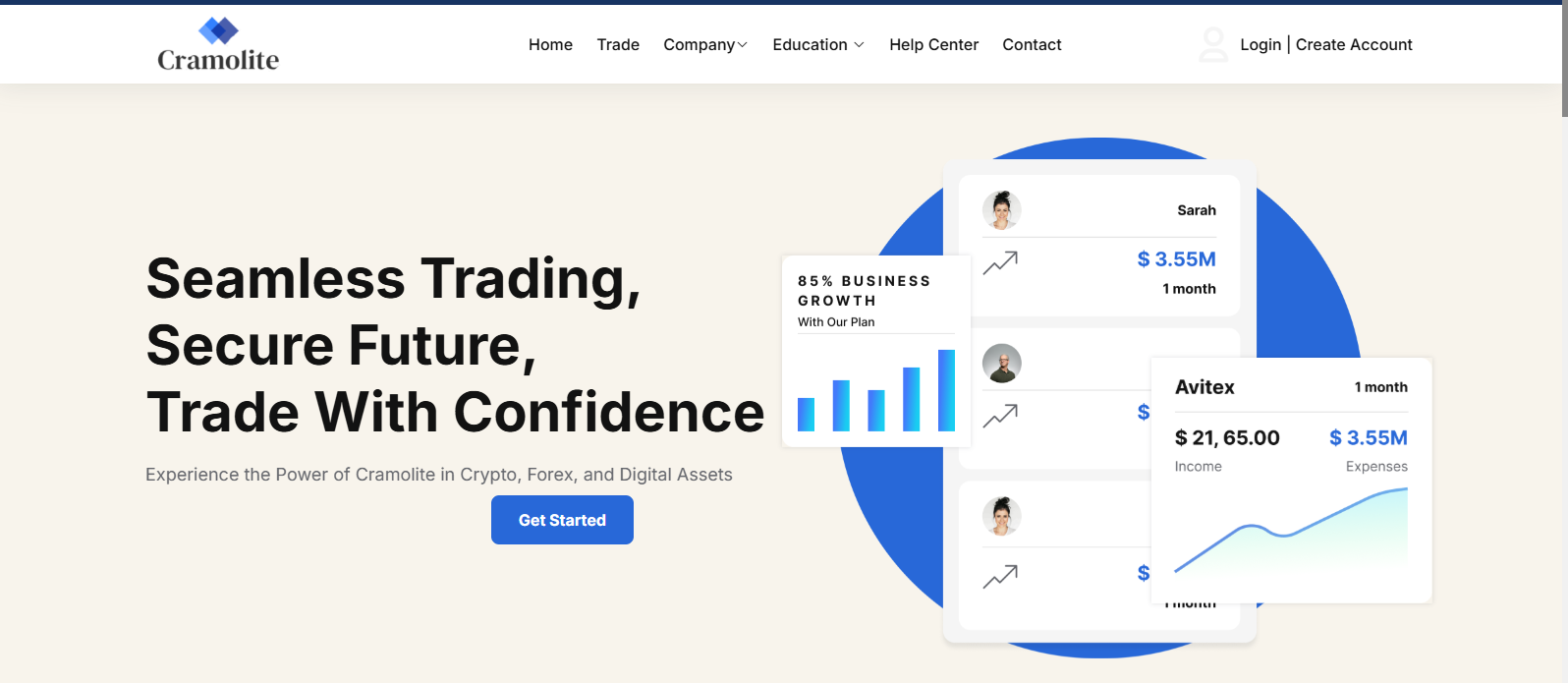- This topic has 0 replies, 1 voice, and was last updated 1 year, 3 months ago by .
Recovery Scam at Cramolite.org Targets Previous Fraud Victims
Type of Scam: Recovery Scam
URL of Scam: cramolite.org
Cryptocurrency Addresses:
 1GpgJhpQozuXSJfSxZYfHoMjTXzMDEa1sA
1GpgJhpQozuXSJfSxZYfHoMjTXzMDEa1sA 
 1GDwa6r9TY2gkhgMVrgqY4hvgBZ7L29mmJ
1GDwa6r9TY2gkhgMVrgqY4hvgBZ7L29mmJ 
 1KXivitCmco57CdcA4xbCxym1HCVi6xkyc
1KXivitCmco57CdcA4xbCxym1HCVi6xkyc 
 1JH42mNfMEx512ofygpaZ1yjxLW9aMSXrK
1JH42mNfMEx512ofygpaZ1yjxLW9aMSXrK 
 1EjeVZ4ejvYF3m8KATJwrJV7cVyjYxp5t7
1EjeVZ4ejvYF3m8KATJwrJV7cVyjYxp5t7 
Amount Lost: $176,895
Description: The victim, initially scammed by BTCBOX-Mas, was contacted by an individual via WhatsApp, claiming to represent Mignocal—a service promising to recover lost funds. The contact purportedly succeeded in retrieving the victim’s funds but then directed the transfer of these recovered assets to Cramolite.org, resulting in a second loss without the return of the initial funds.

Open-Source Intelligence Analysis: Investigative Report on Fraudulent Activities at cramolite.org
Current Website:
The website cramolite.org is implicated in a recovery scam, where victims of previous scams are deceitfully promised the retrieval of their lost investments, only to be defrauded again.
Domain and Hosting Information:
Registrar: NameCheap, Inc.
Registered On: 2023-12-20
Expires On: 2024-12-20
Updated On: 2023-12-25
Status: clientTransferProhibited
Nameservers:dns1.namecheaphosting.com
dns2.namecheaphosting.com
Technical Analysis and Legal Action Recommendations:
Domain Registrar: NameCheap, Inc.Action Recommended: Obtain full registration and ownership details to identify the individuals or entities operating this scam.
Nameservers: Managed by NameCheap HostingAction Recommended: Request DNS logs and settings to analyze the domain’s network activities and investigate any affiliations with other known scams.
Critical Observations:
The use of NameCheap’s hosting services suggests an attempt to maintain a semblance of legitimacy while minimizing operational costs. The domain’s short registration period could indicate a temporary setup designed to maximize fraudulent gains before detection and shutdown.
Conclusion:
The operation conducted through cramolite.org exhibits classic characteristics of a recovery scam, exploiting victims’ desperation to retrieve their previously lost funds. Immediate, comprehensive legal actions, including subpoenas for domain registration information and DNS activity, are crucial to dismantle the fraudulent infrastructure. Such measures are necessary to potentially aid in the recovery of the victim’s funds and to prevent further exploitation by the same scam operators. Public education on the risks associated with recovery services for scam victims is also essential to reduce the incidence of such fraud.
- You must be logged in to reply to this topic.